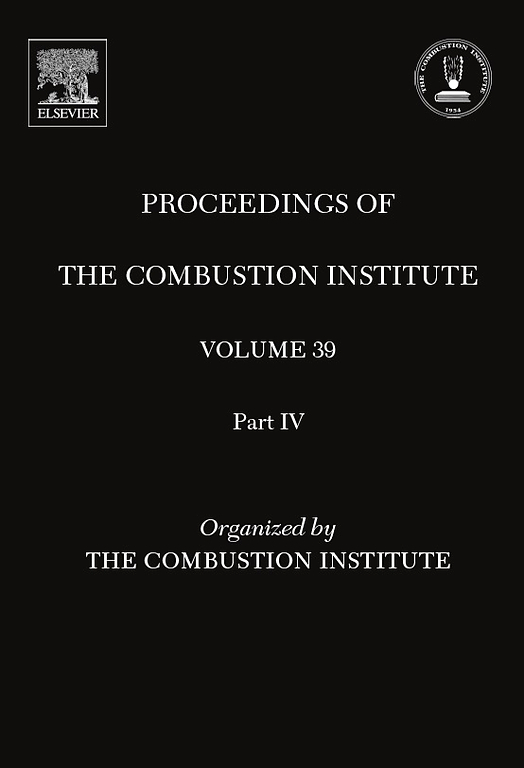Strongly reduced optical absorption efficiency of soot with addition of potassium chloride in sooting premixed flames
Abstract
Optical properties of soot have been investigated with and without potassium chloride (KCl) salt added to the soot formation process in a premixed ethylene/air flame. A strong decrease in optical absorption efficiency of the soot was observed with increasing amounts of KCl added to the fuel based on the method of fluence curve analysis using laser-induced incandescence (LII). To understand the reason for this major change in absorption efficiency, probe sampling and subsequent structural analysis were performed using Raman spectroscopy and high-resolution transmission electron microscopy (HRTEM). Raman spectra indicated no significant difference between the nanostructure of soot from the two main cases; a reference case without addition of salt, and a case with addition of ∼600 ppm K. In the case of K addition, HRTEM showed slightly less compact nanostructure signified by somewhat shorter interlayer spacing, and significantly different polar ordering of carbon lamellae indicating smaller primary particles, thereby supporting previous TEM studies on soot sampled from the same flames showing smaller soot particle sizes with KCl addition. The impact on soot absorption properties from the observed differences is discussed. It is speculated that the main cause for the lower absorption with K addition is a quantum confinement effect due to reduction in soot particle size.

 求助内容:
求助内容: 应助结果提醒方式:
应助结果提醒方式:


